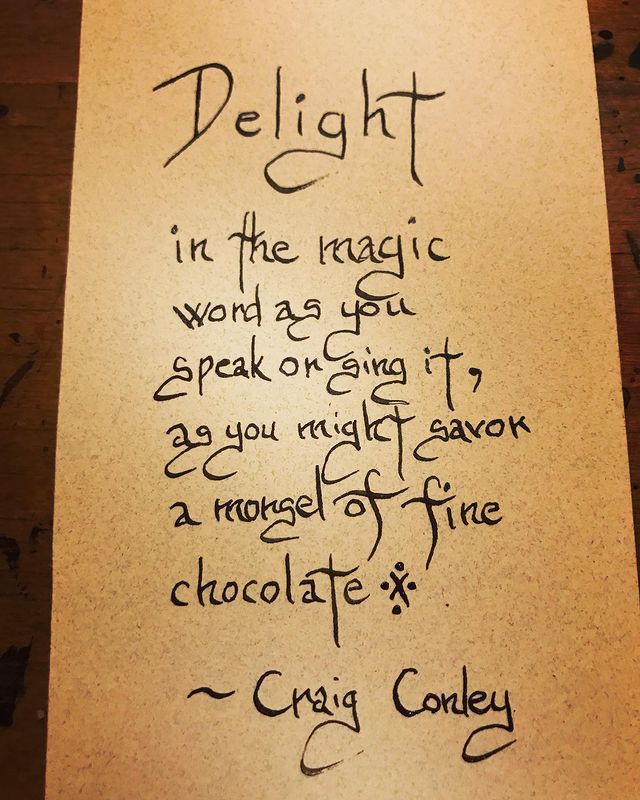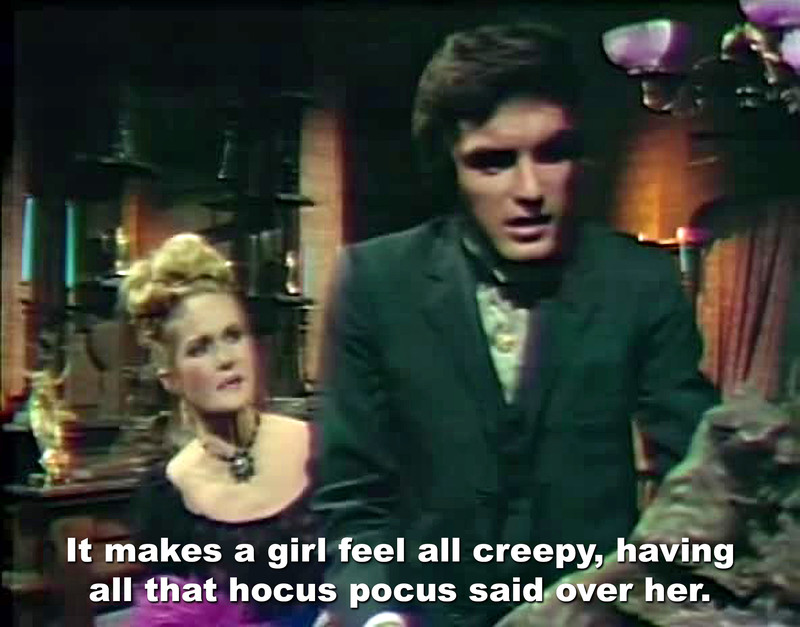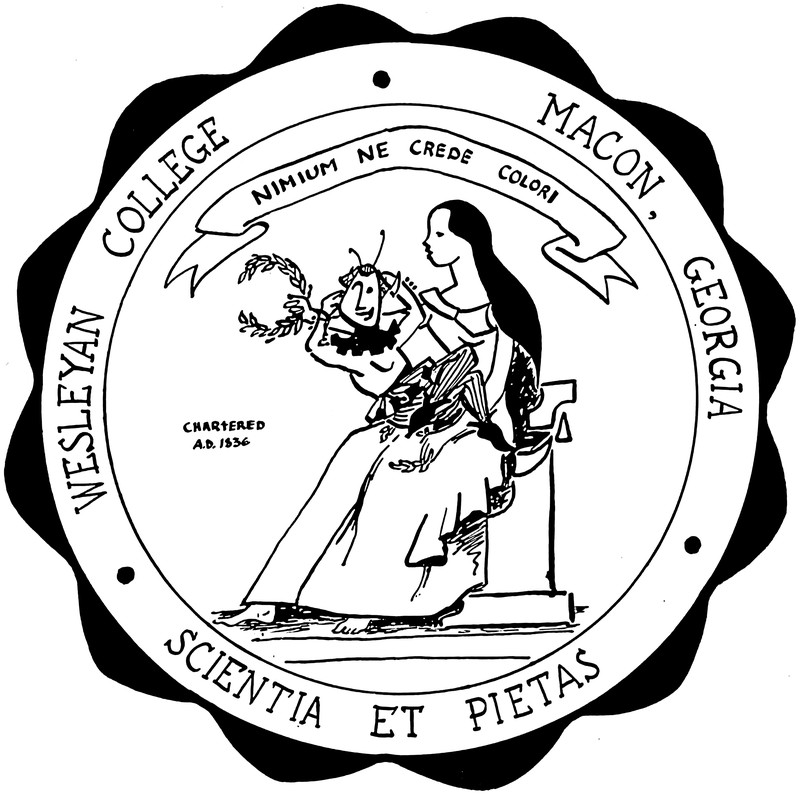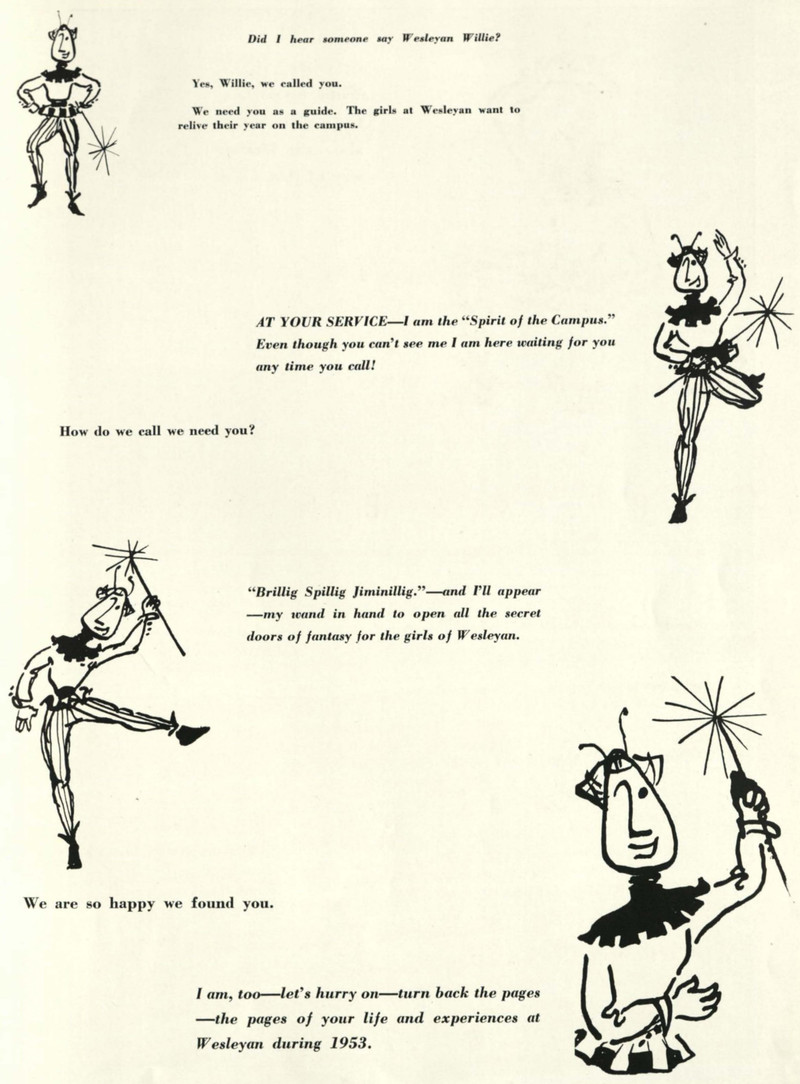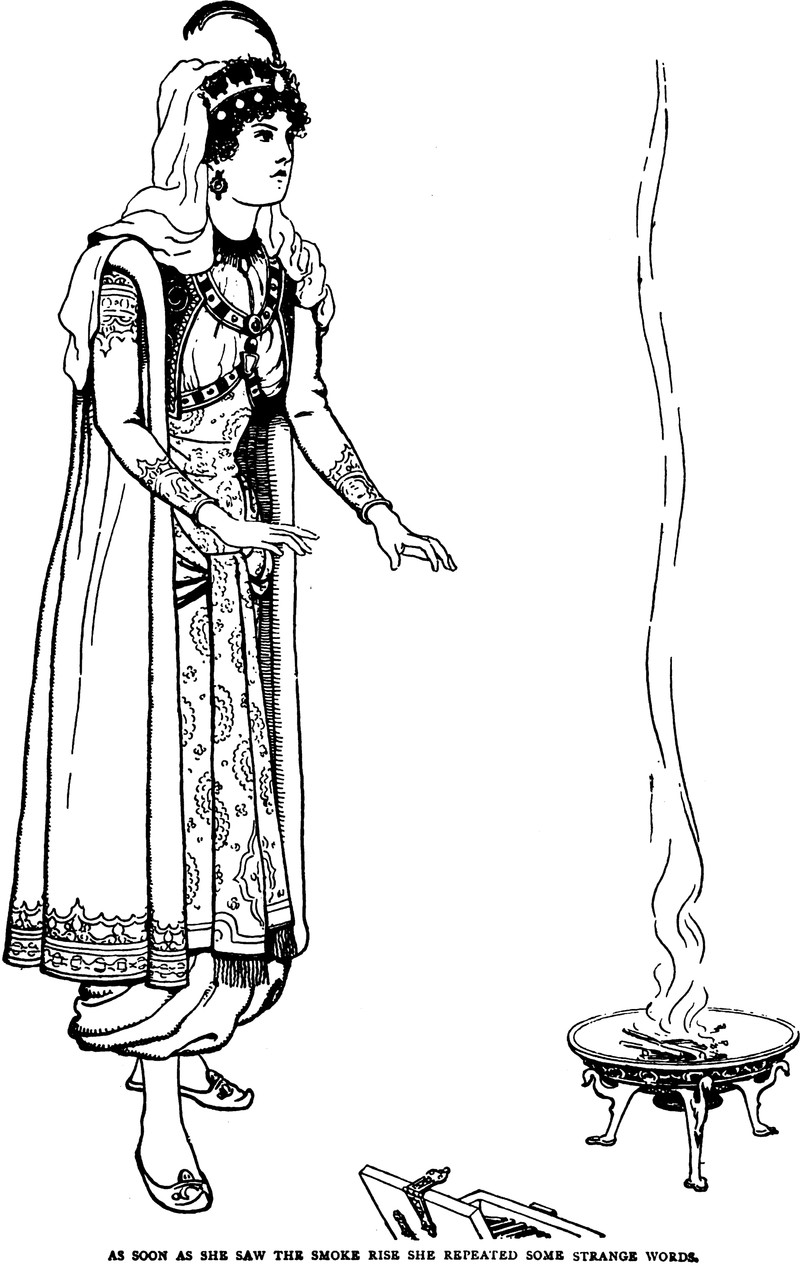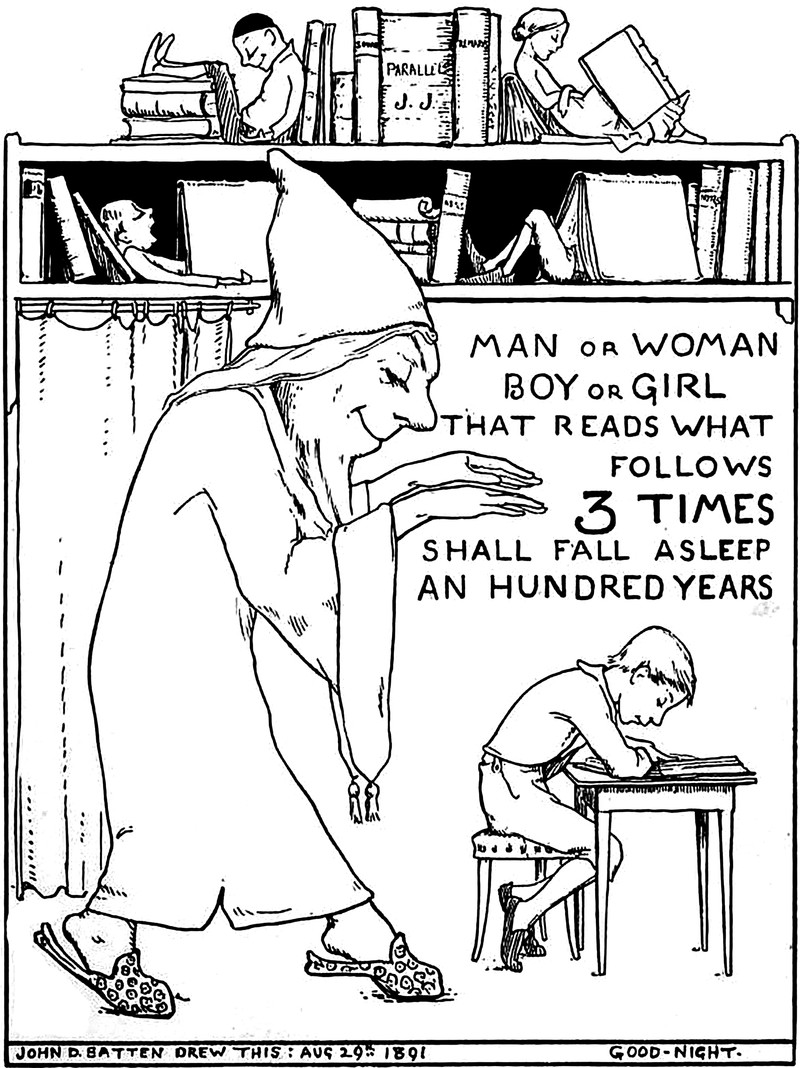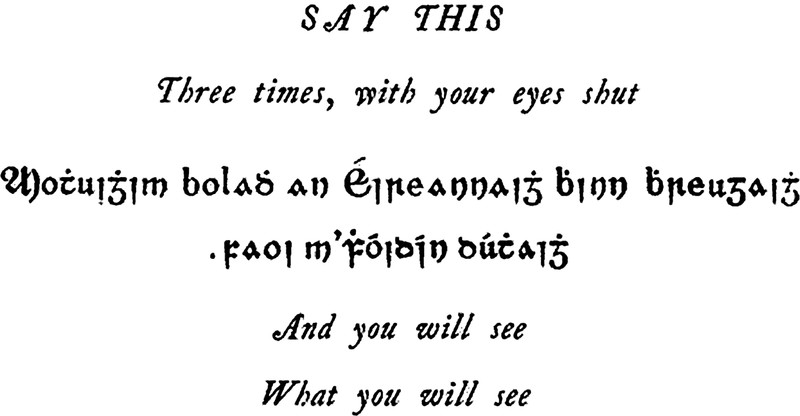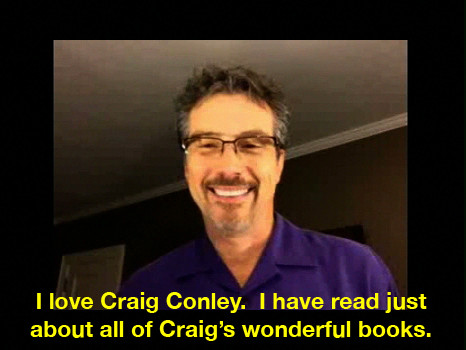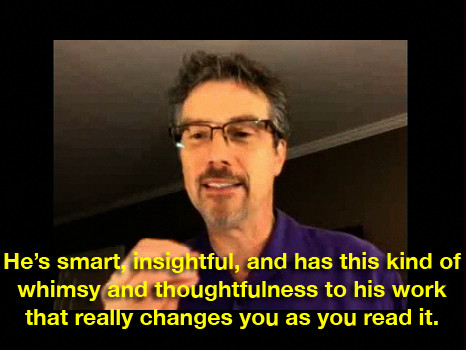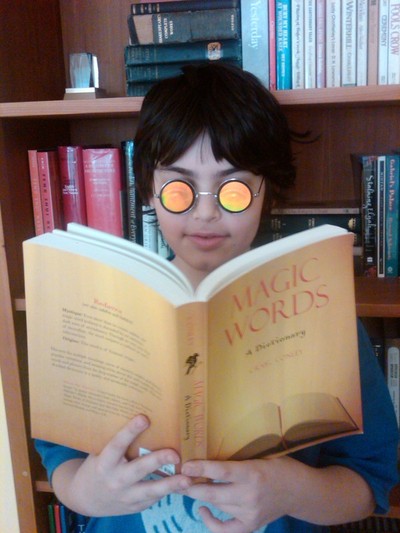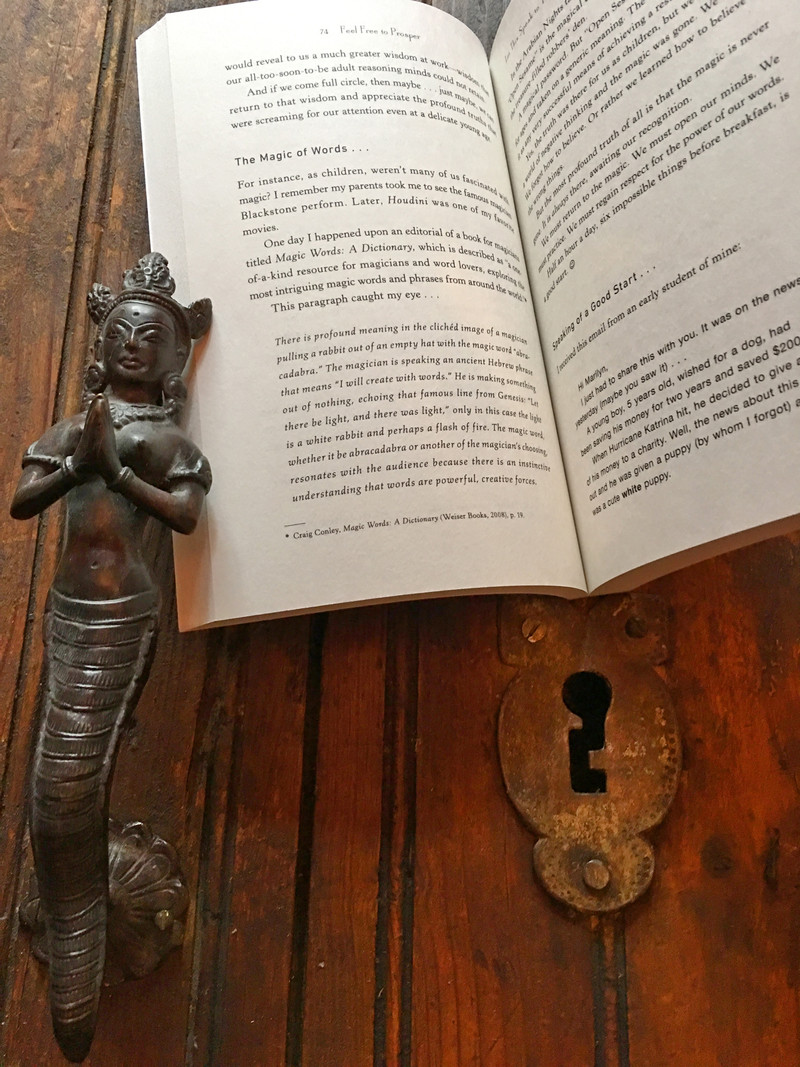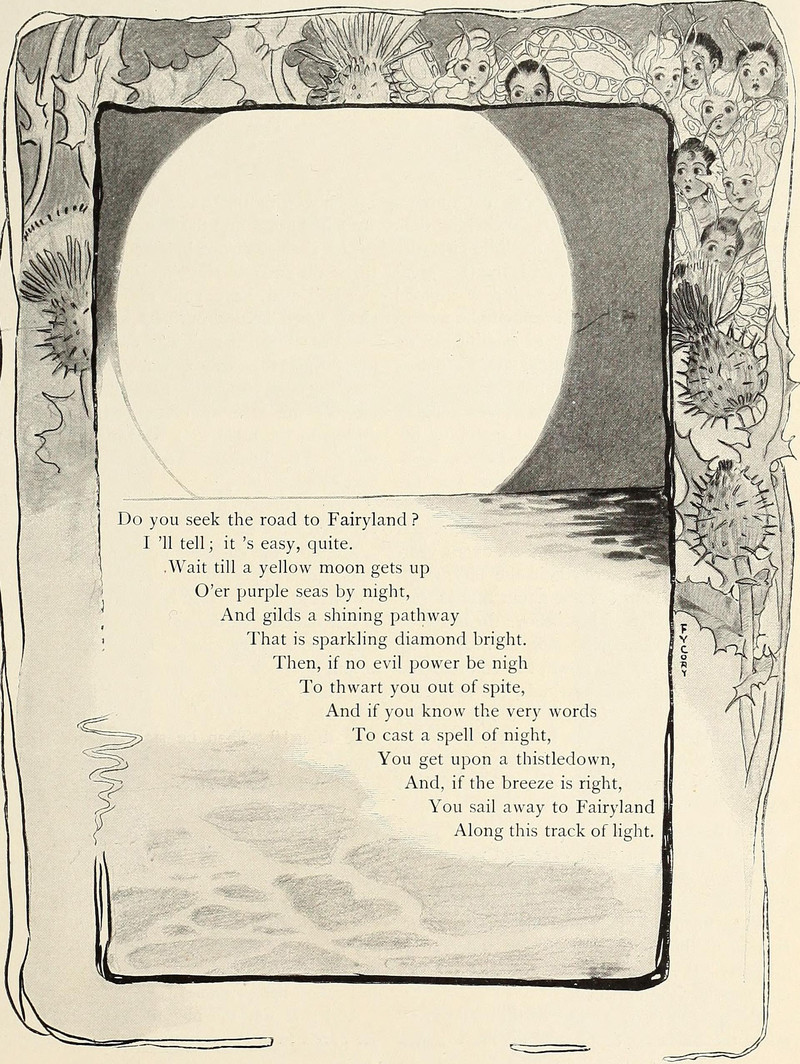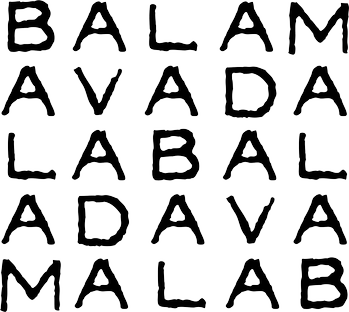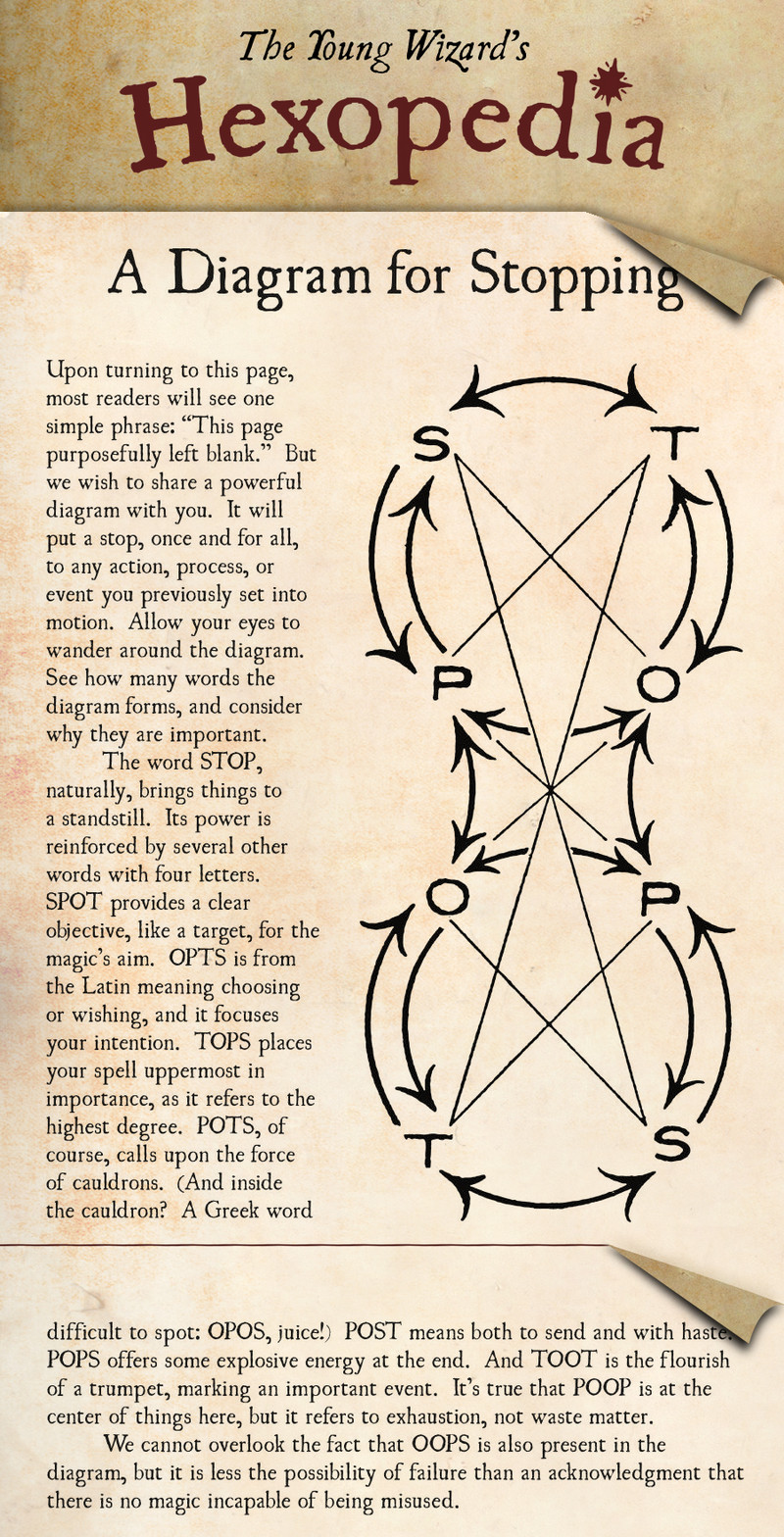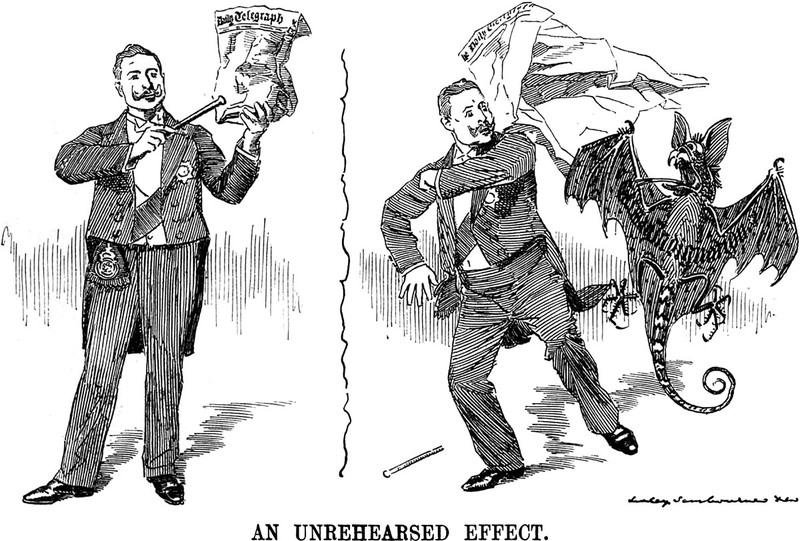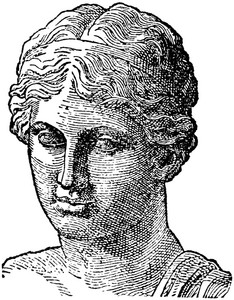Found 39 posts tagged ‘magic words’ |
|
I Found a Penny Today, So Here's a Thought –
March 12, 2021 |
(permalink) |
|
 |
 |
 |
It's an awful thing to know not where you are: Prof. Oddfellow's Penetralia.
Thanks to Bel the Blasphemer, who wrote: "Your content continues to be uncannily relatable. Thank you for the comforting non-place to reside."
|




 |
|
Restoring the Lost Sense –
January 22, 2019 |
(permalink) |
|
 |
 |
 |
 |
| [Inexplicable images from generations ago invite us to restore the lost
sense of immediacy. We follow the founder of the Theater of
Spontaneity, Jacob Moreno, who proposed stringing together "now and then
flashes" to unfetter illusion and let imagination run free. The images
we have collected for this series came at a tremendous price, which we explained previously.] |
|

 |
|
|
 |
 |
 |
From Celtic Fairy Tales, selected by Joseph Jacobs and illustrated by John D. Batten, 1892.
|


 |
|
Go Out in a Blaze of Glory –
July 6, 2017 |
(permalink) |
|
 |
 |
 |
We're honored that Prof. Larry Hass (author of Transformations), speaking over at McBride Magic TV, said that our work "really changes you as you read it." Dr. Hass was introducing our video clip on how to find your own magic word, even if you're a skeptic.
|



 |
|
The Right Word –
January 14, 2016 |
(permalink) |
|
 |
 |
 |
|

 |
|
Book of Whispers –
December 4, 2015 |
(permalink) |
|
 |
 |
 |
"The Road to Fairyland" by Ernest Thompson Seton, in St. Nicholas magazine, 1903.
 |
* The most profound secrets lie not wholly in knowledge, said the poet. They lurk invisible in that vitalizing spark, intangible, yet as evident as the lightning—the seeker's soul. Solitary digging for facts can reward one with great discoveries, but true secrets are not discovered—they are shared, passed on in confidence from one to another. The genuine seeker listens attentively. No secret can be transcribed, save in code, lest it—by definition—cease to be. This Book of Whispers collects and encodes more than one hundred of humankind's most cherished secrets. To be privy to the topics alone is a supreme achievement, as each contains and nurtures the seed of its hidden truth. As possessor and thereby guardian of this knowledge, may you summon the courage to honor its secrets and to bequeath it to one worthy. |
|


 |
|
|
 |
 |
 |
The story of how The Young Wizard's Hexopedia came to be is just about as unlikely as the book itself. One November morning, a stranger wrote from out of the blue, asking for assistance with an extraordinary book of magic. The stranger turned out to be the CEO of a publishing house specializing in the world's quirkiest subject matter, in search of a grimoire that didn't technically exist. His own research had somehow determined that I was the one with the know-how to bring this lost book back from the depths. It seems that he had seen a window display of an esoteric bookshop and had noticed that the lost book in question wasn't there. The problem was that no surviving copies of the book are known to exist. My task was to rediscover and recreate the entire document from quotations and implications in magical literature. The stranger provided me with some crucial scraps, trusting that the whole work might be holographically contained within the parts. Knowing the title and a rough idea of the table of contents, I set to work hunting through cryptic volumes in private libraries of magic (whose locations I'm not at liberty to reveal, though I can say that I visited Hollywood's Magic Castle). Suffice it to say, I left no philosopher's stone unturned. The process was very much like putting together a jigsaw puzzle in a dark room, with only a flickering candle for illumination. To my own surprise, the lost book began taking shape almost immediately. Restoring fragments into sentences and arranging them into paragraphs proved less challenging than one might suppose. For example, you can surely divine what the last word of this sentence will [...]. Whenever a passage seemed to have something almost tangibly missing, like the absence of a vital book in an esoteric shop window, I knew to keep digging. The moment it was clear that the entire Hexopedia was restored, I verified the accuracy of my work with three highly gifted wizards of words: a playwright in New Hampshire, a poet in Pennsylvania, and a teacher of magical arts in Nevada. Then I sent the restoration to the stranger, who flabbergasted me by suggesting that the book should not come back into print at all but rather remain hidden in shadowy slumber until a more enlightened era. (Apparently the trickster merely desired a copy for his personal use!) Having worked so intimately with the text for so long, I felt convinced that the world was ready once again for the Hexopedia ... that it shouldn't rest only in the private library of one megalomaniacal* publisher. And the rest, as the former, is history. Here's a random page from The Young Wizard's Hexopedia.
*Note that "megalomaniacal" is an anagram of "ole magi almanac," so it all seems to be part of some mysterious tapestry, eh?
|


 |
|
The Right Word –
February 13, 2013 |
(permalink) |
|
 |
 |
 |
On the magical quality of philosophical phrases: "They have something, a sort of magic — I don't know what — that makes like rich and exciting to me. . . . I think we're thrilled by the weight of history that lies behind each one of these phrases. It isn't just the world itself, or just its immediate meaning. It's a long, trailing margin of human sensations, life by life, century by century, that gives us this peculiar thrill. . . . I know they're absurd, these phrases . . . Words like 'pluralism' and 'dualism' and 'monism.' But what they make me think of is just a particular class of vague, delicious, physical sensations! And it's the idea of there having been feelings like these, in far-off, long-buried human nerves, that pleases. . . . It makes life seem so thick and rich and complicated." — John Cowper Powys, Wolf Solent
|

 |
|
I Found a Penny Today, So Here's a Thought –
May 3, 2012 |
(permalink) |
|
 |
 |
 |
|

 |
|
|
 |
 |
 |
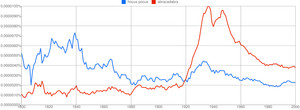
Abracadabra (the red line) rises in popularity in the 1920s.
From our Magic Words outpost: Our intriguing magician friend Chris Philpott posed an interesting question about the preponderance of the two most popular magic words: So since you're The Man on magic words (and you are, whether you like it or not) I have a question for you. My most recent blog was about trying to find various magical applications for Google's Ngram viewer -- as you may know, this is Google's database of all the millions of books they've digitized -- you can enter a word or phrase and see its relative popularity over hundreds of years. I was putting in various magic-related words (like magicians' names and various magic tricks) when I decided to compare the relative popularity of two well-known magic words, Abracadabra and Hocus Pocus. I discovered the word Abracadabra had a huge surge in popularity in the 1920s (comparable to the word Wizard in the 1990s) -- I suspect there's a reason for the surge (probably as clear as J. K. Rowling's influence on the word Wizard), but I can't think what it would be. Any thoughts? Chris, there are actually two very different answers to your question about abracadabra's surge in the 1920s. Here's our first answer: What we see when presented with a chart comparing word density over time from the Google Books scanspace is both something and nothing at all. It's certainly something because we can perceive it, i.e. the charts dazzle us with their jagged edges and numerous nodes, suggesting the compilation of many data. However, the trends that they argue are circular, based as they are only upon the tiny subset of books which Google has scanned from the periods under consideration. If we had it on reliable word that Google had scanned, say, 95% of all extant publications, we should still consider word density measurements statistically insignificant considering that the missing 5% might contain 95% of the contemporary appearances of "abracadabra" in print. Moreover, Google cannot estimate the readership of its catalog, which would be necessary to make any evaluative claims about the familiarity of a word or phrase in common culture or parlance, which is really what the word density charts are attempting to demonstrate. Words used by authors in printed publications which survived until 2010 are not, by themselves, particularly significant. The field of statistics is famous for its bold sleights of hand. Most any contention can be illustrated by a sufficiently culled data set and evaluative methodology. Google's scanned word data are of course too fun not to keep playing with, but we must always bear in mind their inherent balderdash. Here's our second answer: The rise of "abracadabra" in 1920s is the exhalation of a meme's biorhythm. Decades later, the "wizard" meme began its exhalation, and J.K. Rowling rode the wave. We can't even say that Rowling buoyed the wave -- she is merely part and parcel of a grand expansion cycle. Chris responds: I'm not sure I'm 100% with you on J.K. Rowling -- certainly she rode some kind of wave but I think her talent was a wave generator of its own. I suspect if she had called Harry a "mage", then instead of showing The Wizards of Waverly Place, The Disney Channel would now be showing The Mages of Mulberry Lane. Writers are notorious copycats (though the demands of the marketplace tend to accentuate this weakness).
Indeed, Chris, one definition of "meme" is an expression that can be copycatted. (The Greek root is mimema: that which can be mimicked or imitated). Without discounting Rowling's achievements, let's remember that she didn't coin the word "wizard"; it was already a charming Briticism for "excellent." Just as the common cold spreads one handshake at a time (Richard Dawkins has unsavorily called memes "viruses of the mind"), human culture spawns. Rowling, bless her heart, is simply one node of the complex informational network that enables the "wizard" meme to spread and thrive. |

 |
|
|
 |
 |
 |
From our outpost at Blogspot: [Is poetry holographic? Like a hologram, can a surviving fragment of
an ancient poem unfold the original meaning in its entirety? We like
to think so.]
Here's Sappho's take on magic words:
Although they are
Only breath, words
which I command
are immortal
(translated by Mary Barnard) |


Original Content Copyright © 2026 by Craig Conley. All rights reserved.
|



